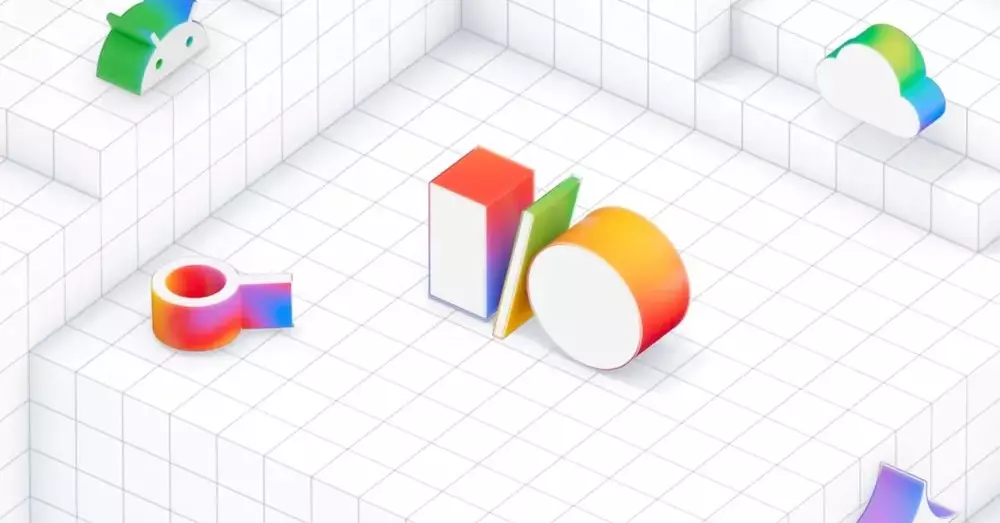As the tech world eagerly anticipates Google’s I/O developer conference, the landscape of technological advancements appears poised for a breathtaking shift. This year, the spotlight at the conference will shine predominantly on Artificial Intelligence (AI) and Extended Reality (XR), a clear departure from the past focus on Android OS updates. This shift isn’t just a momentary trend; it signifies a broader movement towards integrating innovative technology deeply into our daily lives. In many ways, what Google aims to unveil at I/O reflects the future trajectory of tech—not just for the company, but potentially for the industry as a whole.
The AI Race: An Unrelenting Pursuit
With many tech giants like OpenAI, Meta, and Microsoft intensifying their efforts in the AI sector, Google finds itself in a most compelling position: how to showcase leadership without succumbing to the commodification of innovation. It’s not merely about releasing new features; it’s about demonstrating the transformative capabilities of AI through products and applications that can redefine everyday tasks. Industry analysts speculate that groundbreaking enhancements to Google’s Gemini AI may be on the horizon, perhaps tailored to optimize user experiences not just on devices, but in various domains of life such as productivity, entertainment, and education.
The conference is expected to highlight how Google’s AI developments are racing against competitors. The potential for Gemini to introduce augmented capabilities, such as personalized assistance or intelligent automation, promises to invigorate user interaction. This competitive drive will establish Google as not only a technological powerhouse but a thought leader in algorithmic ingenuity.
XR: The Next Frontier of User Experience
While AI steals much of the limelight, the anticipated updates regarding XR should not be overlooked as they unfold a narrative of innovation in tangible consumer experiences. Google’s foray into XR could be revolutionary, particularly with the promised updates around their Android XR OS. The tech giant seems to be at a critical juncture, where the integration of smart glasses and augmented capabilities may pave the way for a dramatically different way in which users interact with both the digital and physical worlds.
As other tech companies, including Samsung, gear up to unveil their XR hardware, Google’s unveiling of its software innovations may want to leave a lasting impression that cannot easily be eclipsed. This not only solidifies the brand’s commitment to leading the charge in XR technology but also serves as a crucial moment for maintaining relevance in an aggressively competitive space.
A Focus on Event Structure and Accessibility
For those eager to engage with the proceedings, Google has taken significant steps to ensure inclusivity and accessibility. Scheduled for May 20th at 10 AM PT, the keynote promises a few hours of insights that could redefine consumer expectations and industry standards. Streaming the event on multiple platforms, including YouTube with American Sign Language interpretation, showcases Google’s commitment to making these groundbreaking announcements accessible to a wider audience. It’s more than just a business strategy; it’s indicative of a cultural shift towards inclusivity in tech communications.
However, it’s worth noting the prevailing concerns entrenched in such major announcements. Known for making ambitious promises each year, there lies a heavy expectation on Google to not only meet but exceed the anticipation of their audience. Comparing their announcements to those from Microsoft’s Build event, occurring just before I/O, may prove telling about the contrasting approaches these tech titans are employing in the race toward technological innovation.
The Challenge Ahead
However, amidst all the excitement, one must maintain a critical lens. The relentless focus on AI and XR brings forth essential discussions about ethical implications, data privacy, and user dependency on these technologies. Will Google’s advancements alleviate common issues facing users today, or will they introduce new challenges that customers aren’t yet ready to grapple with? The success of this year’s I/O won’t just be measured by applause or social media buzz; it will also be about the foresight that accompanies these technological advancements.
With this conference, Google’s I/O becomes not just a platform for showcasing its innovations, but rather a litmus test for the tech industry’s future direction—one that juxtaposes promises with reality in a realm where technology evolves at breakneck speed.

